Germany has already experienced a number of floods, from which political flood heroes have emerged. A look back – and a look ahead after the smirk at the wrong moment from Chancellor candidate Laschet.
Armin Laschet reacted quickly. He was already there on Thursday morning. Since then he has trudged through the muddy water in rubber boots …

… listened to the stories of people who lost everything in the floods …
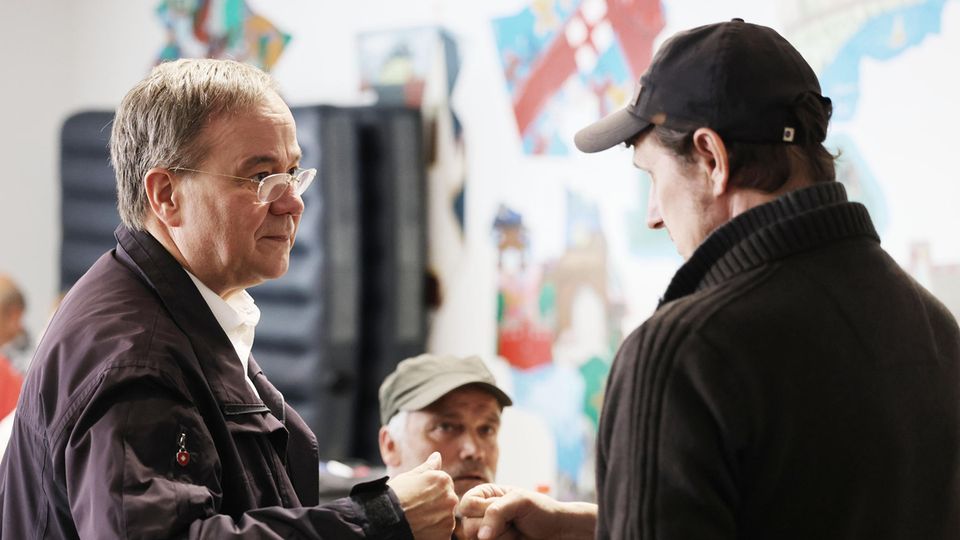
… and spoke to the helpers who went to fight the water masses.
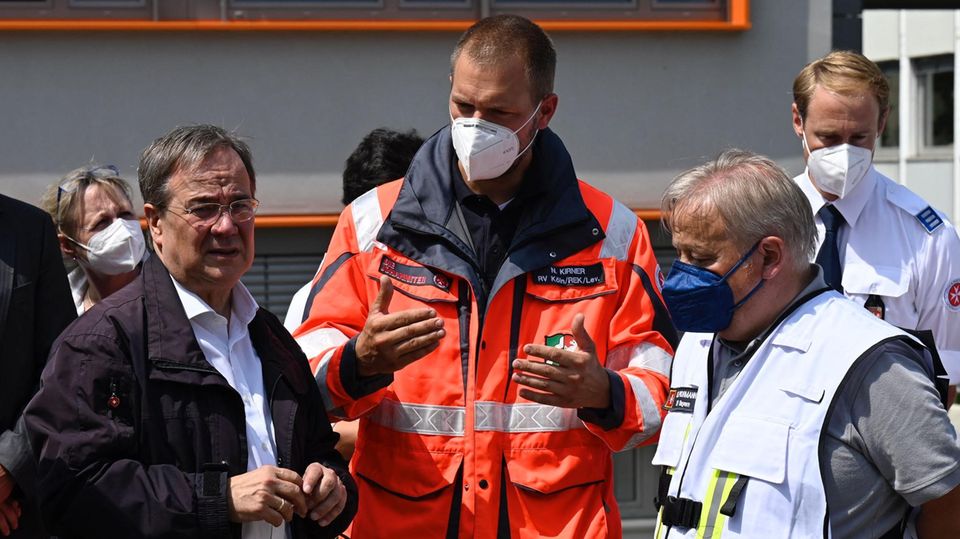
The Prime Minister of North Rhine-Westphalia showed his presence, while “a flood disaster of historic proportions” (Laschet) drew a path of destruction through his state as well. But one impression, which Laschet himself is likely to be the most annoyed about, could get stuck in particular: The Federal President wants to give consolation – and the father of the country laughs heartily in the background.

“I was out all day, there were emotional encounters that really shook me. And that’s why I’m all the more annoyed about these few seconds,” said Laschet on Sunday evening, who repeatedly expressed his regret for the “inappropriate” laugh. which “arose from a conversation”. But by then the storm of indignation had already broken over him.
“Here Laschet smirks when Steinmeier talks about the suffering of the victims”,. Even the British and the reported about the scene, which became a Twitter trend under the hashtag “#Laschetlacht”. “I’m really speechless”,. “A question of character” – albeit.
Laschet has a special role to play these days and, as his laugh shows, more attention than he might like. He is the Prime Minister of North Rhine-Westphalia, thus responsible as a crisis manager, and in a part-time job the candidate for chancellor of the Union, thus a candidate for the successor to “Crisis Chancellor” Angela Merkel (CDU).
“An image with symbolic power”
As cynical as it sounds, the role of the crisis manager can be of benefit to public officials. But also the beginning of a defeat. In times of disaster, the hour of the executive strikes, people wonder who they can rely on – and the behavior of those responsible provides information about this. Especially in election campaign times. Politicians walk a fine line between crisis aid and the accusation of wanting to capitalize on the suffering in the election campaign. Compassion cannot appear as a calculated means.
The Chancellor should be aware of this fact, and she has undoubtedly avoided making such an impression – whether wanted it or not. She traveled to Rhineland-Palatinate on Sunday and visited the flood victims with SPD Prime Minister Malu Dreyer. And so not to North Rhine-Westphalia to Laschet, a party friend, who wants to follow her to the Chancellery. Merkel and Dreyer walked hand in hand through the rubble. A CDU local politician saw it. “When you see these two women walking hand in hand, you don’t see any trace of an election campaign!”, “Merkel and Dreyer show character and greatness, so it can and should work.”
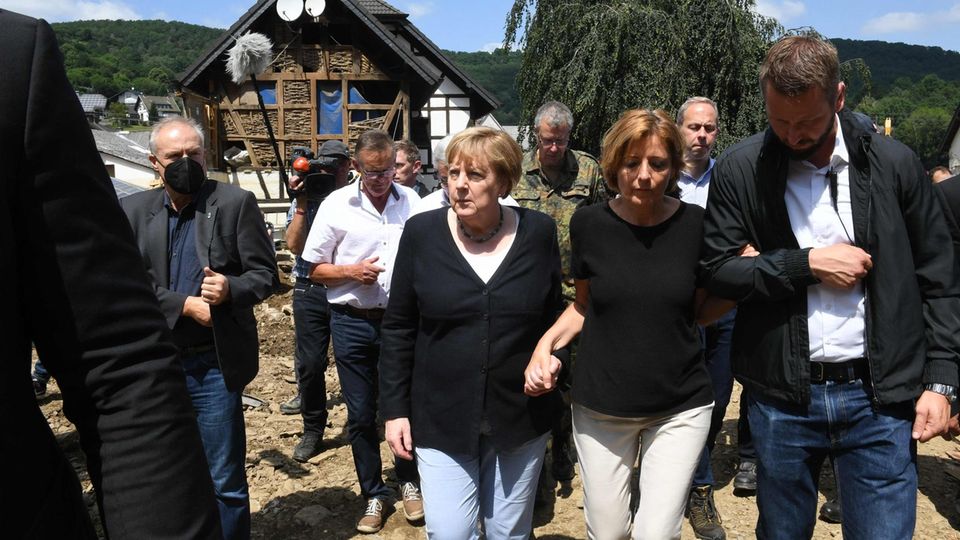
Germany has already seen many floods and just as many flood heroes. Helmut Schmidt is likely to be the prototype of the tackling crisis manager. In February 1962, the then SPD interior senator took over the command of operations during the great storm surge and made a name for himself beyond his Hamburg as a reliable crisis manager. Years later he moved into the Chancellery.
That floods definitely have the potential to decide elections – or at least play a major role in them – has been known since Gerhard Schröder at the latest. In 2002 he trudged through the Elbe flood in rubber boots. The picture is still present almost 20 years later: over his crisp white shirt he wears a green rain parka, the dark gray suit pants tucked into the calf-high, black boots.
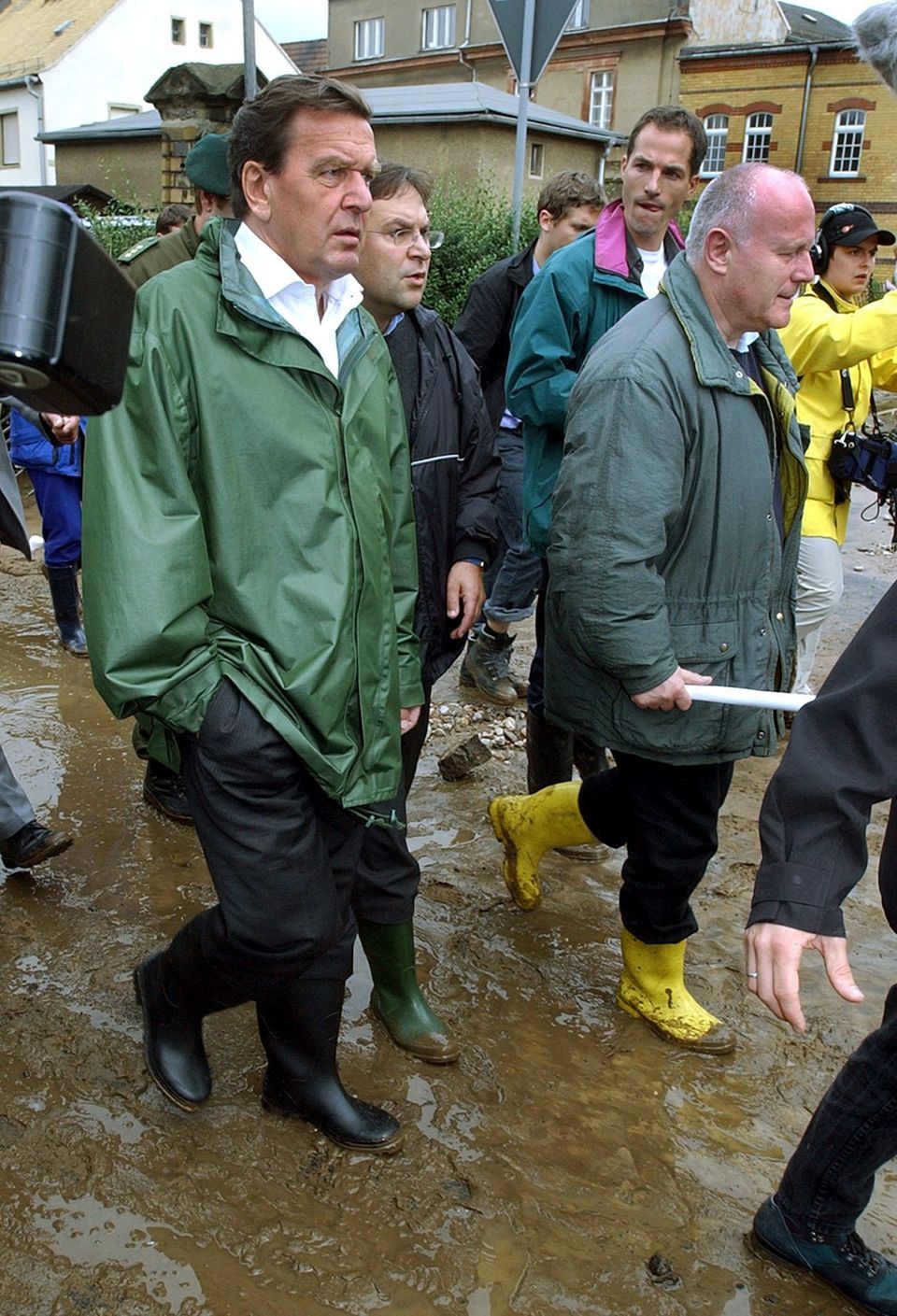
Quite a few say that these rubber boots decided the general election. Before the flood, the SPD is seven points behind the Union in polls. Then the rain comes in the east, the Elbe rises until the enormous masses of water break dams and tear away houses. Schröder travels to the flood areas, later invites you to a crisis summit and puts together an aid package. His challenger at the time, Edmund Stoiber (CSU), says in retrospect: “As a challenger, I didn’t have these opportunities”. The SPD is catching up in polls and wins the election in September 2002 by a wafer-thin margin.
Matthias Platzeck made a name for himself in the fight against the floods of the Oder flood in 1997. The then Environment Minister of Brandenburg showed presence …
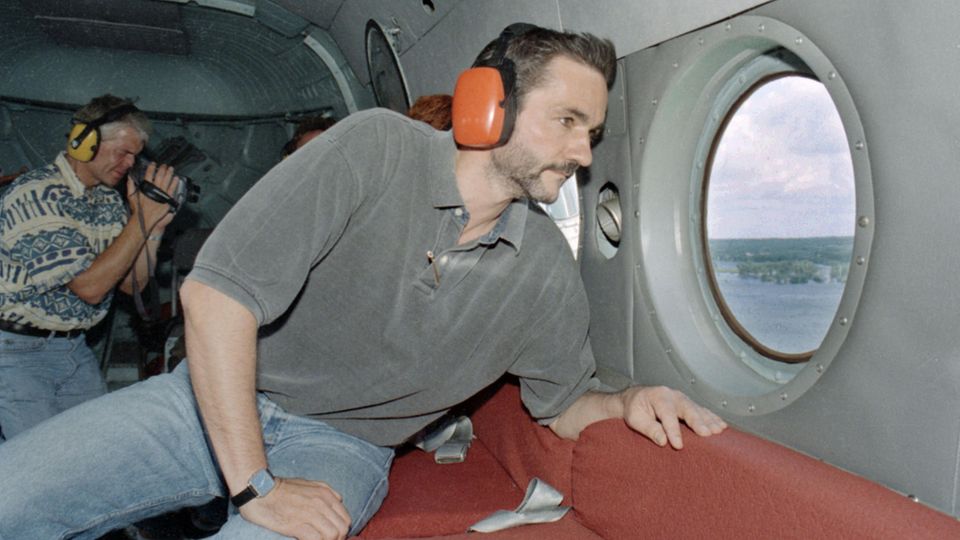
… and determination in the fight against the Oder floods. His gripping appearance made him known nationwide and earned him the name “Deichgraf”.
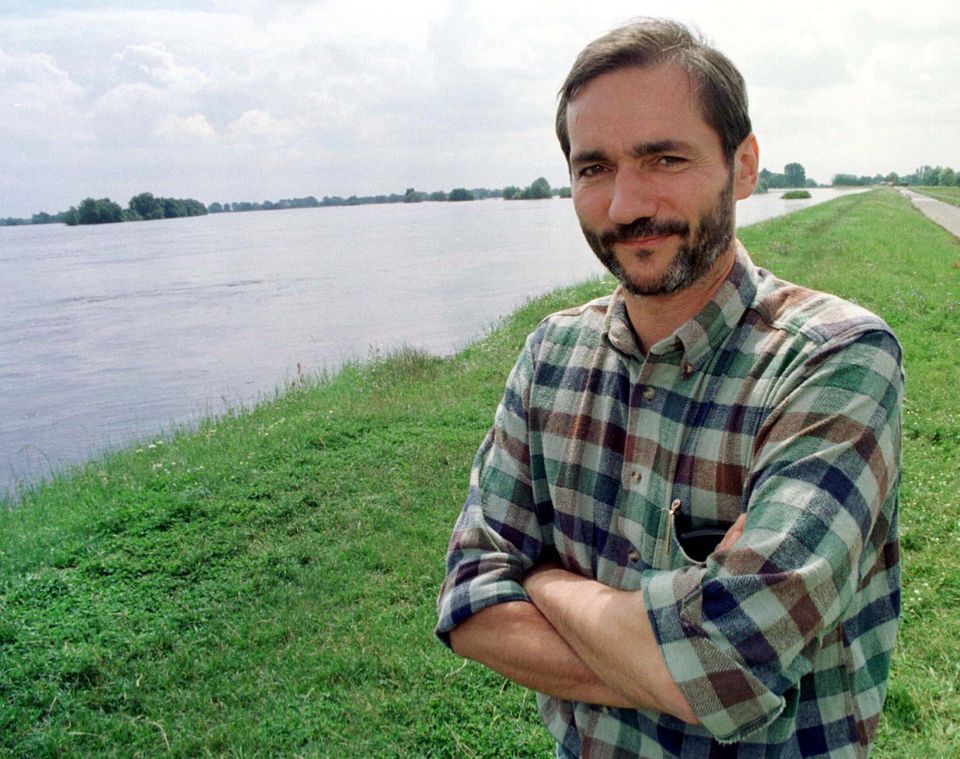
A little later he became Lord Mayor of Potsdam before he succeeded Manfed Stolpe as Prime Minister of Brandenburg.
Has Armin Laschet lost his “Deichgraf” moment? What is certain is that his laugh comes at the wrong time. The “Süddeutsche Zeitung”: “Laschet, crisis manager on his own behalf”. His smirk at the wrong moment could be interpreted as a deficit – because of: someone wants to move into the Chancellery who lacks seriousness in the crisis. If only for a few seconds.
David William is a talented author who has made a name for himself in the world of writing. He is a professional author who writes on a wide range of topics, from general interest to opinion news. David is currently working as a writer at 24 hours worlds where he brings his unique perspective and in-depth research to his articles, making them both informative and engaging.




